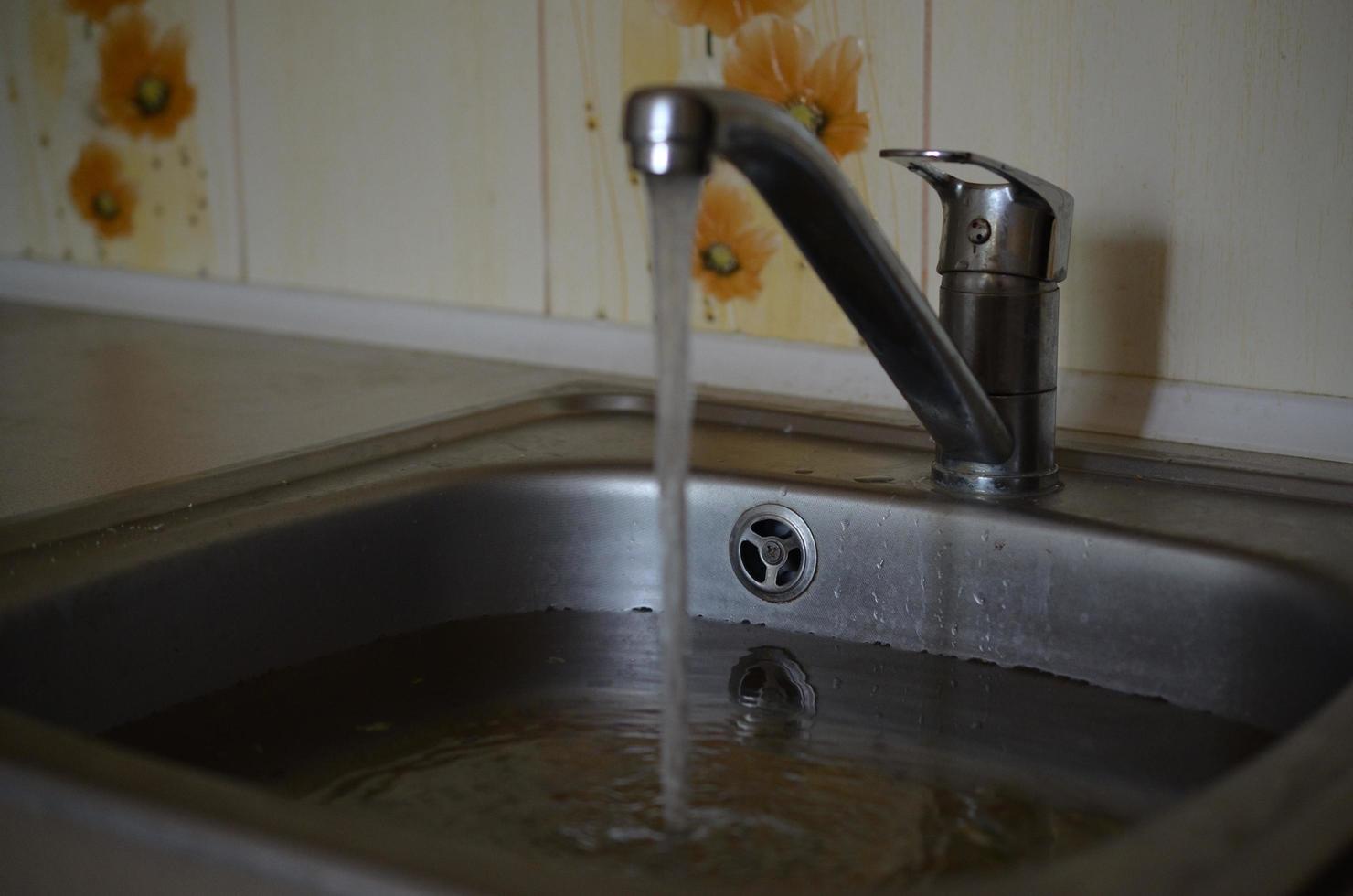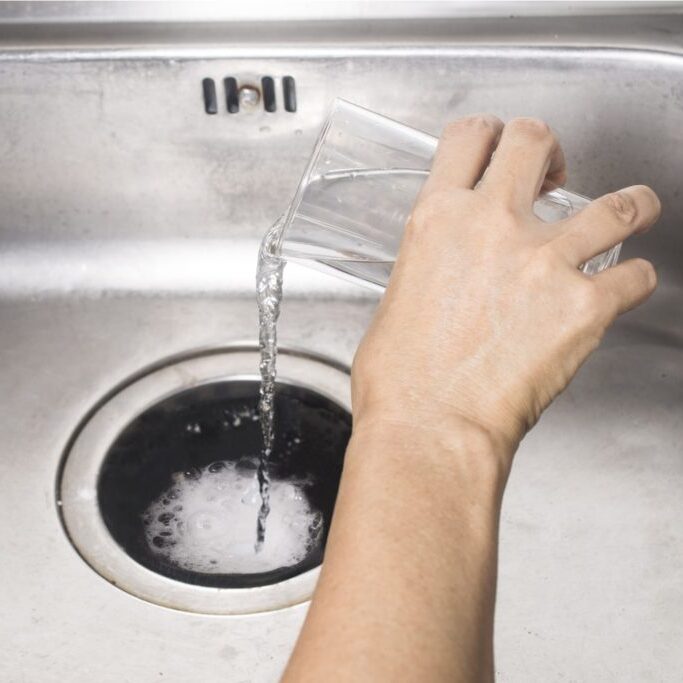We've noticed this post pertaining to How to Fix a Slow Draining Sink below on the net and decided it made good sense to relate it with you on this page.

Intro
We have actually all existed: You're brushing your teeth or cleaning your hands, and you notice the water pooling in the sink. Instead of rapidly swirling down the tubes, it remains, transforming your once-refreshing morning regimen right into a small overload scene. A slow-draining sink isn't simply bothersome; it's usually an indication of bigger plumbing issues lurking below the surface. Fortunately is that the majority of slow-draining sinks can be fixed with a little knowledge, a couple of standard devices, and some patience. Prepared to tackle this job head-on? Let's roll up our sleeves and dive right in.
Recognizing the Sources Of a Slow-Draining Sink
Prior to you begin poking around in your pipes, it assists to know what may be triggering the slowdown. Comprehending the origin makes it less complicated to choose the appropriate solution.
Tools and Materials You'll Require
The right devices make all the difference. Luckily, you won't require a completely equipped plumbing professional's van to do the job.
Step-by-Step Guide to Repairing a Slow-Draining Sink
Now, allow's get involved in the nitty-gritty. This step-by-step procedure will certainly lead you with easy techniques to recover your sink's drainage.
Action 1: Get Rid Of and Clean the Stopper
Commonly, the stopper (that tiny plug you push down to block water) is the first wrongdoer. Remove it carefully and wipe any type of hair or gunk trapped around its base. Wash it thoroughly prior to putting it back in place.
Action 2: Utilize a Bettor to Displace Particles
Got that plunger all set? Position it over the drainpipe and provide it a couple of company pumps. The concept is to create suction that can loosen up any type of obstruction. If you see little bits of particles drifting up, you get on the appropriate track.
Action 3: Attempt a Drainpipe Snake or Cable Hanger
If the plunger doesn't do the trick, it's time to draw out the drain serpent. Delicately feed it right into the drain and spin as you go. You might feel some resistance-- that's likely the clog. Keep twisting and drawing till you eliminate the obstruction. If you don't have a drain snake, a corrected cord wall mount can operate in a pinch.
Tip 4: Use a DIY Drain Cleanser
An all-natural cleaner made from baking soda and vinegar can break down recurring grime. Put half a cup of baking soft drink right into the drain, adhered to by half a cup of vinegar. Let it fizz for about 15 mins, after that flush with warm water. This chain reaction commonly does wonders for minor obstructions.
Step 5: Reconstruct and Test the Sink
Placed every little thing back with each other and run the faucet. Does the water currently swirl down the tubes at a reputable speed? If yes, give on your own a pat on the back. Otherwise, do not misery-- there are still a few even more dress up your sleeve.
Vital Tools for DIY Services
A bettor is your best starting point. A tiny, sink-sized bettor develops suction that can dislodge minor obstructions. For even more relentless clogs, a drain serpent (often called a plumbing professional's auger) works marvels. A pair of handwear covers, a flashlight, and possibly a pair of safety safety glasses are likewise handy.
Advised Cleansing Solutions
Mild meal soap and warm water can aid break down greasy accumulation. A combination of cooking soft drink and vinegar is a tried and true natural remedy, and chemical cleansers use a more eco-friendly approach. Keep chemical drain cleaners as a last resource, as they can be extreme on your pipelines.
Usual Offenders Behind Slow Drainage
So, what's blocking things up? Usually, it's a mix of everyday particles-- assume hair, soap scum, tooth paste residue, and leftover food bits. With time, these little bits build up and cling to the pipeline wall surfaces, progressively narrowing the passage and making it harder for water to travel through. In some cases, natural resource from tough water can additionally include in the crud, producing the best tornado for stubborn blockages.
When is it Time to Act?
If you discover the water draining slower than common, it's an excellent concept to intervene sooner as opposed to later on. Waiting also long might cause finish obstructions, unpleasant smells, or even pipe damage. If the water takes greater than a few secs to remove after turning off the faucet, consider it a warning and get ready to place on your DIY hat.
Security First: Preventative Measures and Preparations
Before you launch into unclogging setting, think of security. You're dealing with possibly dirty water and particles, so slip on a set of handwear covers. If you're utilizing chemical cleaners, make sure the space is well-ventilated and comply with the directions on the label.
Safety Equipment and Workspace Arrangement
Put down some old towels or cloths around the sink area to capture sprinkles. Clear away any type of products that may get in your method, like soap dispensers or tooth brush holders. Ensure you have good lighting-- grab a flashlight if needed.
Different Methods for Stubborn Clogs
Not all obstructions are developed equal. If your sink still rejects to coordinate, think about these alternative options.
Baking Soda and Vinegar Technique
We currently discussed this, yet it's worth keeping in mind once again. This mild, environment-friendly approach is safer than chemical cleansers and frequently fairly efficient.
Chemical Drainpipe Cleansers
Enzyme-based cleansers utilize all-natural microorganisms to absorb raw material. They're an exceptional selection if you're looking to stay clear of rough chemicals. Simply remember, they might take a bit longer to work their magic.
Chemical Drain Cleansers: Advantages And Disadvantages
Chemical cleaners can blast through tough obstructions fast, yet they're not without downsides. They can produce heat and fumes, damages pipelines if utilized excessively, and pose ecological risks. Utilize them sparingly, and constantly adhere to the directions carefully.
Preventive Measures to Keep Your Sink Flowing
Prevention is the most effective remedy. By taking on a few basic routines, you can keep your sink from slowing down to begin with.
Normal Cleaning Habits
Clean down the sink basin and fixture area on a regular basis. Remove hair or food bits before they have an opportunity to wash down the drain.
Staying Clear Of Dangerous Compounds Away
Hesitate before disposing coffee premises, oil, or coarse vegetable scraps down the sink. These perpetrators hold on to pipe walls, creating clogs with time.
Routine Upkeep Checks
Arrange a quick month-to-month examination. Run hot water with the sink for a few mins, taking notice of the circulation. If it appears slow, act fast prior to it becomes a full-on blockage.
When to Call a Specialist Plumbing Technician
Sometimes, no matter just how difficult you try, that obstruct simply won't move. That's when it's time to bring in the pros.
Indications That Show a More Severe Concern
If your sink drains pipes slowly despite several efforts, or if you notice water backing up in other components (like your shower or bathroom), you might have an extra serious plumbing problem hiding much deeper in the system.
Stabilizing Do It Yourself Initiatives with Specialist Aid
While do it yourself can save you money and use a sense of accomplishment, there's no pity in calling a professional. A professional plumber can examine your entire plumbing setup, ensuring there's no underlying damage or long-term problem that might cost you a lot more later on.
Comparing Costs and Long-Term Solutions
Prior to choosing, consider the big picture. An economical, quick fix could fix the problem temporarily, but buying an extra irreversible service could conserve you money and stress in the future.
Evaluating the Expenses of DIY vs. Specialist Fixes
Do it yourself fixes commonly cost bit greater than the rate of a plunger or a container of cooking soda. Specialist solutions, on the other hand, featured a cost however might stop repeated concerns and pricey repair services later.
Investing in Quality Fixtures and Upgrades
If your sink's style contributes to frequent blockages, it may be worth upgrading to higher-quality fixtures or changing the plumbing design. Consider this a financial investment in your house's capability and convenience.
Verdict
A slow-draining sink can seem like a minor inflammation, however it's commonly an indicator that your pipes requires a little TLC. By comprehending the root causes, employing the right devices and methods, and committing to simple safety nets, you can keep your sink flowing openly. And when all else falls short, never ever wait to call in a specialist-- your home's pipes is worth the investment in treatment and upkeep.
Three Common Ways to Fix a Slow Drain
Baking Soda Method
Boil a full pot of water. Measure out cup of baking soda and pour it down the drain. Then take cup of the magical cleansing substance known as white vinegar and drop that down there too. Allow the mixture to fizz in the drain for five minutes as the vinegar and baking soda combine. Now dump in that whole pot of boiling water. This combination of cleaning substances should clear out anything that is causing your sink to drain slowly. If it doesn t...
Zip-It
If the baking soda method doesn t clear out your drain, it may be because a significant amount of hair and/or other debris has collected there and you need to remove it. Purchase a Zip-It tool at any home improvement or hardware store and insert it into your drain. It will catch any collected hair or debris that s blocking the flow of water. Pull it out. If it s got a big clump of hair, etc. on the end, you ve probably got your culprit.
Drain Cleaner
If these methods don t work, there is the standard drain cleaner that you can also buy in a hardware store or even your local grocery store. It s better if you can use a household solution, but these drain cleaners often work in a pinch. They re very simple to use. You generally just dump them in your drain and wait. If even this method is not effective, it may be time to call the plumber.
https://www.mrrooter.com/oneida/about-us/blog/2017/july/three-common-ways-to-fix-a-slow-drain/

I have been very involved in How to Fix a Slow Draining Sink and I hope you enjoyed the post. Those who enjoyed our page plz do not forget to share it. I treasure your readership.
Need Help? Hire Us Now!